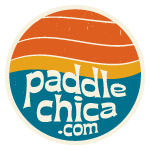Whether you plan to try out for your country’s national team, or you simply want to feel stronger on the boat, training sessions are essential for your paddling development. I recently had a paddler tell me, “I feel like I’m not getting any better.” I asked, “Well, how often do you practice?” She sheepishly smiled and said, “Not that often.” I see the problem. Don’t neglect the training time off the water There is a reason we have the saying, “Practice makes perfect.” Paddling, like most things in life, doesn’t improve without
Whether you have been a lifelong athlete, or have recently found yourself getting sporty, you have likely discovered that paddling has helped improve your life in countless ways. The most obvious improvements focus on the health benefits. Paddling is great cardio, makes you stronger and more fit and can even help you lose weight. But what about the other benefits? The focus, drive and determination that it requires to advance your paddling skills don’t simply stop when you get off the boat. Being an athlete develops a discipline that transfers to all aspects of your
“Coachability.” It’s a commonly used word in sports. We all seem to have an idea of what it means. Or do we? I decided that I wanted to get specific in what coachability truly is from a coach’s perspective. Paddlers often get labeled as “coachable” or not. “Coachable” means “able to be coached,” but what qualities does a coachable paddler have? What exactly earns someone this title? There are 5 main qualities of a coachable paddler. They are: humility, drive, focus, perseverance, and trust. Humility: Let’s use “Jane” as an example. She thinks that
Balancing a boat is essential for a race, but many teams overlook exactly how crucial it can be to their success. Having a properly balanced boat not only makes it easier on the steersman, it also allows the boat to glide through the water evenly. But balance doesn’t only apply to the left and right sides of the boat. Your race boat needs to be balanced front to back as well. Recreational teams will often encourage paddlers to find a “partner paddler” who is more or less the same weight. This
Next survey: Why do you dragon boat? I’d love to hear what brought you to dragon boating and what keeps you paddling year after year. Please take a minute to fill out this short, five-question survey: Why Do You Dragon Boat? I look forward to reading your answers! Thank you in advance for taking the time to participate.
Dragon kisses. Butt blisters. Whatever you call them, they are a true pain in the butt. Literally. Nearly everyone gets them, yet no one likes to talk about them. If you have been rotating properly and using an effective leg drive, it is likely that you have experienced blisters on your rear end a few times. You start to feel that pain, at some point the skin rips open, and when you get in the shower you scream like a little girl when the water hits your rear end. Most all of
A few weeks ago, I asked readers about their favorite dragon boat races and festivals in terms of competition, location and venue. Here are the responses I received: 1) In your opinion, what is the best dragon boat race in terms of competition? This question focused on the level of teams that the race attracted. Vancouver’s Rio Tinto Alcan Race (Canada) was hands-down the most popular among those who responded, followed by Toronto’s Great White North Challenge (Canada). There is no doubt that the Canadians provide some good competition! Other races that
People are always asking me about what I eat and what kind of food I encourage my teams to eat on race days. So, I thought I’d write a post about it. First off, let me say that I am not a nutritionist. I use information gathered from other reliable sources and make decisions based on how various foods make me feel after I eat them. For example, a bowl of Heath Bar Crunch ice cream (my favorite!) makes me feel tired and weak. A piece of chicken, brown rice, and
As a former teacher and a current coach, I have been fortunate enough to be a part of the learning process of individuals. Whether it is academic material or athletic movements, learning new things is a difficult endeavor which can be frustrating. When newbies come out to paddle for the first time, it is important for coaches and teammates to remember that for most people paddling involves completely new body movements. We grow up kicking or throwing a ball, running, jumping, etc. Not many of us were lucky enough to grow up with a paddle in
A Rookie’s Guide to The Dragon Boat World Championships in Welland: Wise Words from Veteran Paddlers
If you are a rookie to Team USA, or your own country’s national team, this guide is for you. After all of the preparation, Welland is just about in sight, which means at this point everything you’ve been doing for the last two years will soon come down to a few minutes of racing on dragon boat’s biggest stage. The physical training is tough, but practices have taken care of preparing the body. What about the other parts of World Championships – the parts that nobody tells you about? That’s

